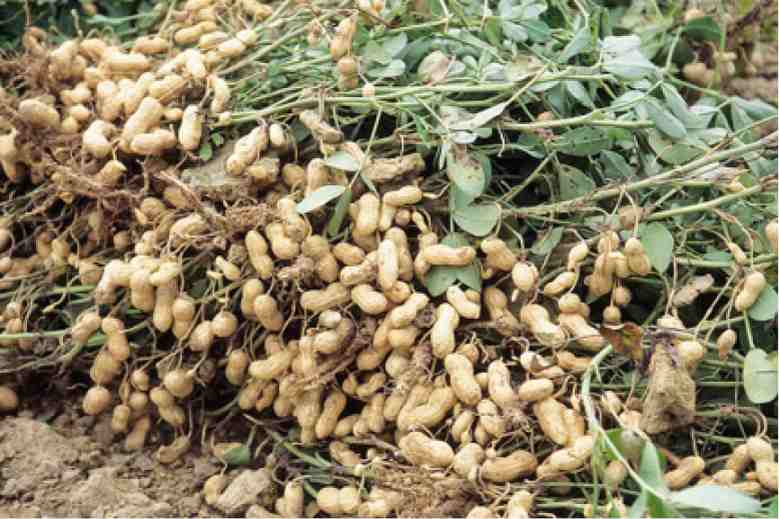The Centre for Dryland Agriculture (CDA) Bayero University Kano is leading other development partners in the groundnut value chain to produce russet resistant varieties of groundnut with a view to enhancing production of the crop in the dryland areas of the country.
Over 50 hectares of demonstration farms have been cultivated in Kano with the technical support of the centre to boost production of different varieties of the crop for the farmers.
- Boosting groundnut production through CBN’s Anchor Borrower Programme
- WOFAN distributes rice mills, groundnut machines to women farmers
Groundnut has been one of the main contributors to Nigeria’s Gross Domestic Product (GDP) prior to the discovery of crude oil in the 70s; and since then production of the crop suffered a setback and total neglect that resulted to the disappearance of groundnut pyramids of Kano.
Speaking to Daily Trust recently during a field visit to some of the groundnut farms, the Deputy Director, CDA, Professor Sanusi Gaya said about nine varieties of groundnuts have so far been developed by the Institute for Agricultural Research, Ahmadu Bello University Zaria in an attempt to revive Groundnut farming.
“The reason why we decided to embark on this tour of groundnuts farms is to showcase what the Centre for Dryland Agriculture of Bayero University is doing with its teaming partners especially farmers and seed companies so that people will know the contribution of the centre to the development of Agriculture in Kano state and Nigeria in general.
“Before the oil boom, agriculture generally was the mainstay of the Nigerian economy and there is no gainsaying the fact that groundnut has contributed tremendously to the GDP of Nigeria but around late 70s to late 80s there was serious decline in groundnuts production in Nigeria which occurred due to disease that is call russet.
“Russet is a disease that reduced groundnuts production to zero level but with the advent of science new varieties are being developed by several institutions both national and international, the institutions that are working in Nigeria have come with new diverse varieties that are resistant to that russet disease and that is what is bringing groundnuts production back into limelight in Nigeria.
“Farmers have tried these varieties, they have witnessed their potentials and they are selecting the best they need in terms of the cannel, in terms of fodder that they need for their livestock and that is why you see the seed company taking groundnuts seed productions serious to meet up the requirement of the farmers in Nigeria.
He described seed as the most important farm input, urging farmers to always lookout for improved seeds for a better yield.
“Seed is the most important input in most agricultural production because no matter the volume of rainfall you have, no matter the availability of other inputs such as fertilizer and pesticides you have, if you don’t have good quality seeds the end result will not be what the farmers like. So scientists have developed many and different kinds of varieties and are now being release for production in Nigeria.
“Take for example, for groundnuts, from year 2000 to date nine improved varieties of groundnut have been released by the Institute for Agricultural Research of Ahmadu Bello University Zaria which is saddled with the responsibility of improving groundnuts production in Nigeria and we as partners of that institution are involved at every stage in the development of those varieties.
“That is why we are now taking the varieties to farmers to try them on their farms and if farmers are convinced you don’t have to tell them to continue growing these varieties and they will keep coming to us asking for these varieties, they will keep going to seeds companies buying seeds that is to confirm to you that the farmers are happy with these varieties of groundnuts and groundnuts production is coming back to limelight in Nigeria” he assured.

 Join Daily Trust WhatsApp Community For Quick Access To News and Happenings Around You.
Join Daily Trust WhatsApp Community For Quick Access To News and Happenings Around You.


